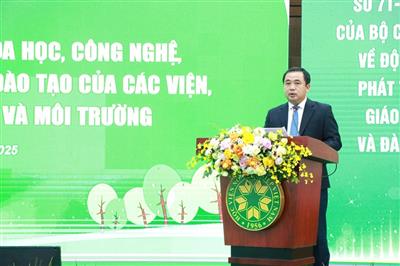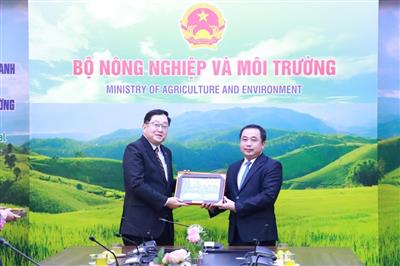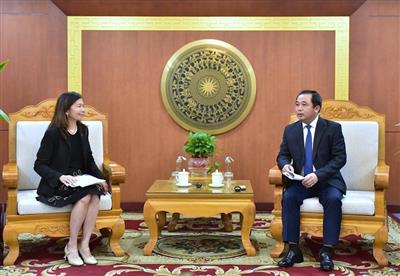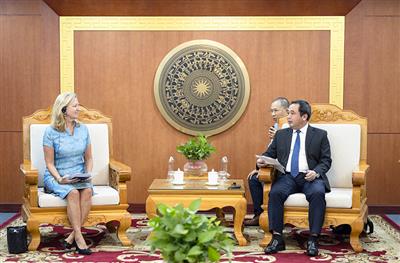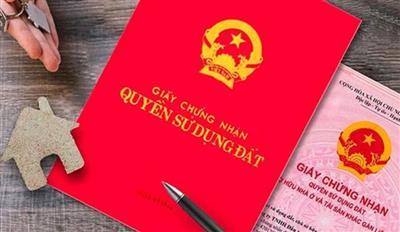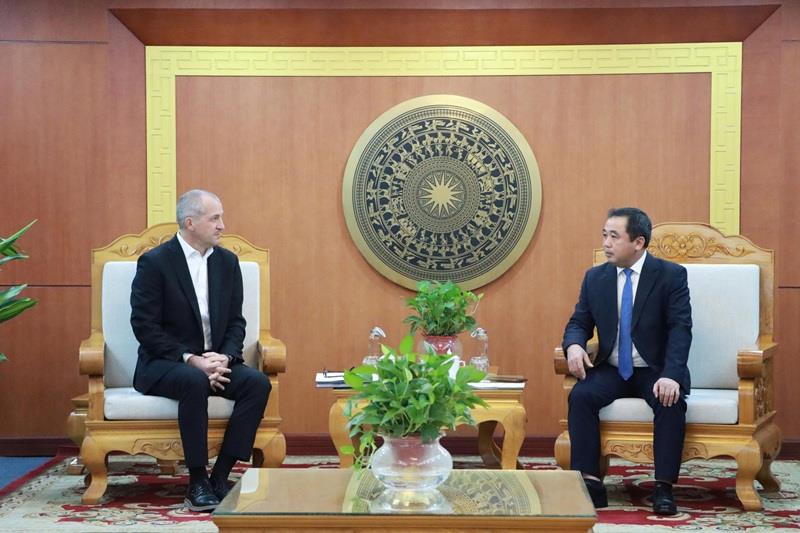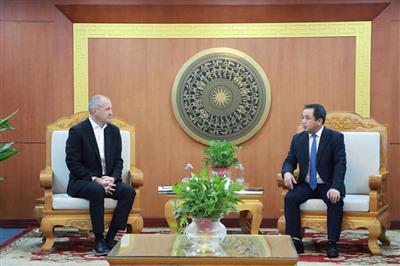
Linking policy, technology, and markets to strengthen regional cooperation for green agricultural value chains
19/11/2025TN&MTAt the workshop “Regional linkages - Promoting green value chains in Vietnamese agriculture,” Deputy Minister Phung Duc Tien emphasized that the Ministry of Agriculture and Environment will prioritize advancing regional linkage strategies and developing comprehensive cooperative models centered on farmers, businesses, scientists, and local authorities.
On November 19, Agriculture and Environment Magazine organized the workshop, which brought together key stakeholders to discuss pathways for green agricultural development. Deputy Minister Phung Duc Tien attended and delivered the keynote address.
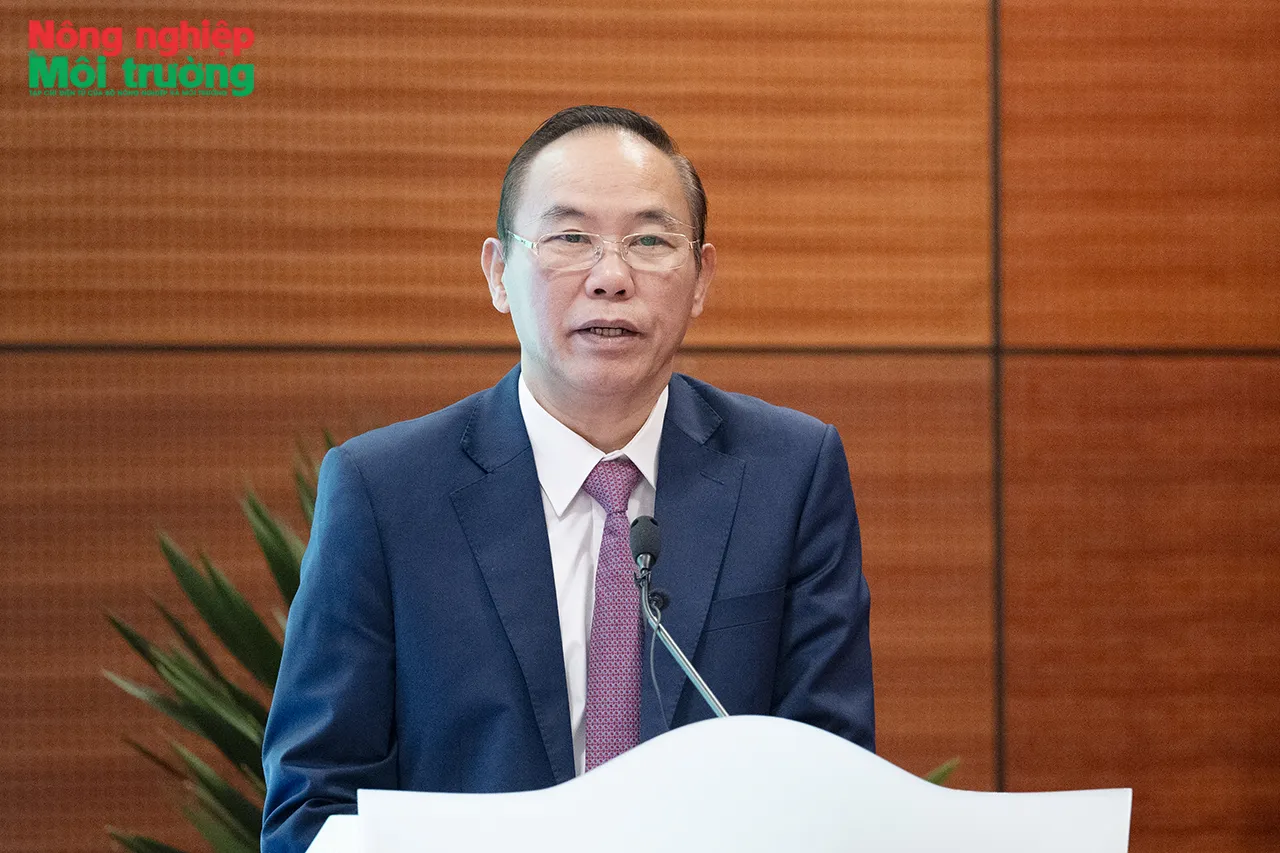
Deputy Minister Phung Duc Tien highlighted that green agriculture, circular economy, and organic farming offer Vietnam a chance to develop distinctive, globally competitive products, leveraging technology, digital transformation, and traceability (Photo: Minh Thanh)
Regional linkages and green value chains: Foundations for sustainable agriculture
Facing increasingly complex climate change, growing pressures to reduce emissions, and the environmental requirements of a two-tier local governance system effective from July 1, 2025—which will necessitate regional planning adjustments—the agricultural sector must also respond to stricter international standards on product quality, origin, and sustainability. These challenges call for comprehensive innovation at local, regional, and inter-regional levels to establish sustainable green value chains.
In his keynote, Deputy Minister Phung Duc Tien emphasized: “Green agriculture, circular economy models, and organic farming offer Vietnam a significant opportunity to develop distinctive, locally rooted products with global competitiveness. Leveraging science and technology, digital transformation, traceability systems, and the advantages of the seven ecological-economic regions will help build sustainable agricultural value chains.”

Deputy Minister Phung Duc Tien stressed that the Ministry will prioritize regional linkage strategies and cooperative models centered on farmers, businesses, scientists, and local authorities, with traceability, food safety, certification, and technology transfer as key pillars (Photo: Minh Thanh)
He added that the Ministry will focus on regional linkage strategies and comprehensive cooperative models that place farmers, businesses, scientists, and local authorities at the center. Initiatives covering traceability, food safety, international certification, specialty product development, technology transfer, and inter-regional cooperation are seen as essential pillars for achieving substantial progress in green value chain development.
Editor-in-Chief Dao Xuan Hung of Agriculture and Environment Magazine highlighted that promoting green value chains is an inevitable trend and a strategic task in modernizing agriculture for efficiency and sustainability. Green value chains not only help reduce emissions and protect the environment but also create opportunities to increase the added value of agricultural products, build national brands, and enhance competitiveness amid rising international standards.
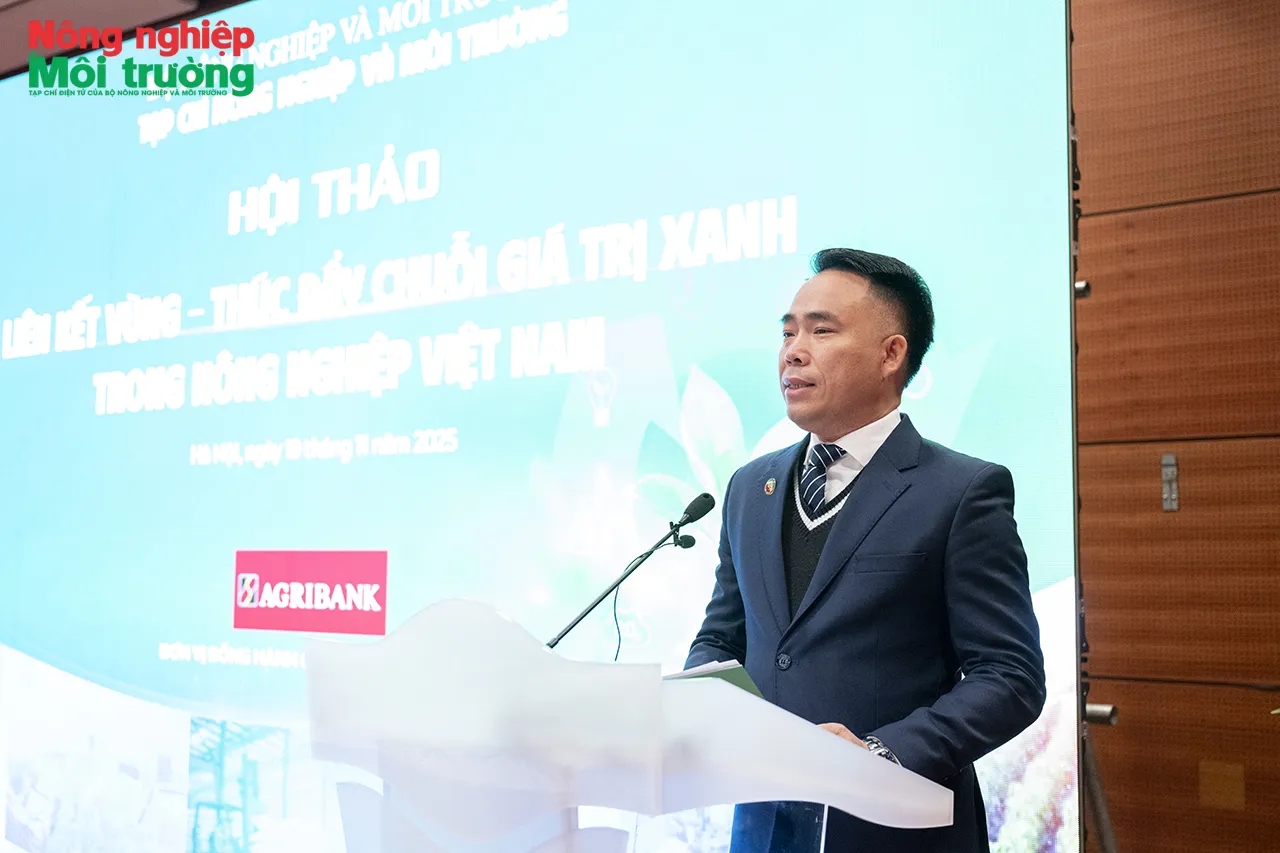
Editor-in-Chief Dao Xuan Hung noted that green value chains are essential for modernizing agriculture, reducing emissions, enhancing product value, building national brands, and boosting international competitiveness (Photo: Minh Thanh)
He further emphasized that developing green value chains contributes to low-emission agricultural production, improves product quality and value through standardized processes and traceability, expands export markets, particularly high-end markets prioritizing sustainable products, supports stable rural economic development, raises farmers’ incomes, establishes concentrated raw material zones, encourages deep processing, optimizes logistics, reduces post-harvest losses, and advances Vietnam’s net-zero emissions objectives under the national sustainable development agenda.
During the workshop, participants presented in-depth papers analyzing key requirements for sustainable green value chain development. Many contributions highlighted the need to refine regional linkage mechanisms, ensure coordinated cooperation across localities in planning and raw material zones, facilitate data sharing, and organize production and consumption along value chains.
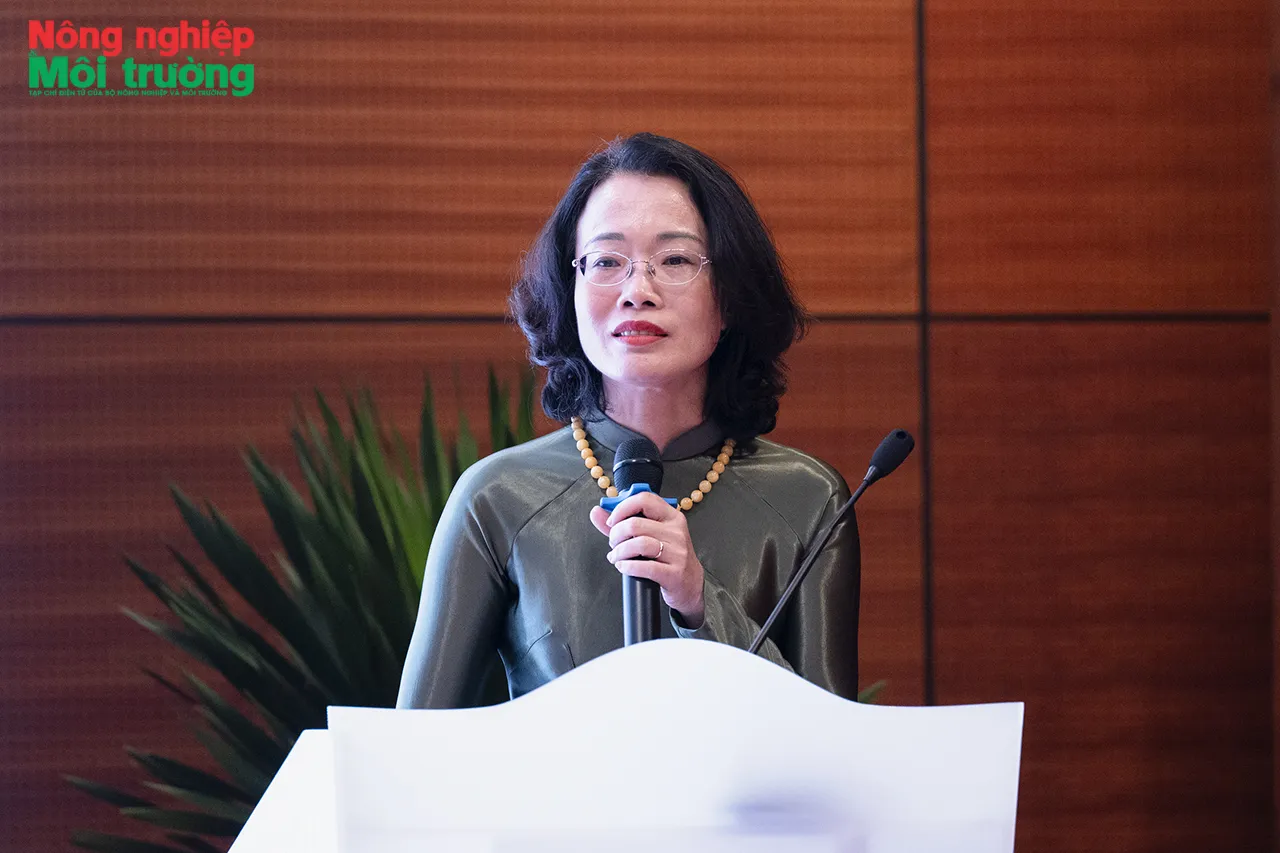
Dr. Pham Thi Thanh Nga emphasized that regional cooperation allows authorities to forecast, share data, manage water resources, and respond to climate risks, ensuring food security and sustainable livelihoods (Photo: Minh Thanh)
Associate Professor, Dr. Pham Thi Thanh Nga, Director of the Institute of Meteorology, Hydrology, and Climate Change, underlined that regional linkages are a cornerstone of green agriculture and the circular economy.
“With climate and environmental conditions varying across river basins and ecological regions, regional cooperation enables local authorities to proactively forecast, share data, coordinate water resources, and organize early climate risk responses. It also ensures food security, production stability, and sustainable livelihoods, in line with the 2020–2030 Organic Agriculture Development Plan under Decision 885/QD-TTg,” said Dr. Pham Thi Thanh Nga.
Additionally, presentations stressed the importance of standardizing quality criteria and strengthening traceability as key strategies for Vietnamese agricultural products to meet increasingly stringent international requirements while enhancing transparency and competitiveness.
Promoting regional linkages and green transformation
Dr. Tran Cong Thang, Director of the Institute of Strategy and Policy for Agriculture and Environment, highlighted that professional farmers should form the core of green agricultural value chains and sustainable agricultural ecosystems. New-generation farmers need comprehensive knowledge and skills in green production processes, traceability, international certification, and global market standards. Production models organized through core cooperatives and professional farmer groups are crucial for ensuring linkage, coordination, and discipline across the chain.
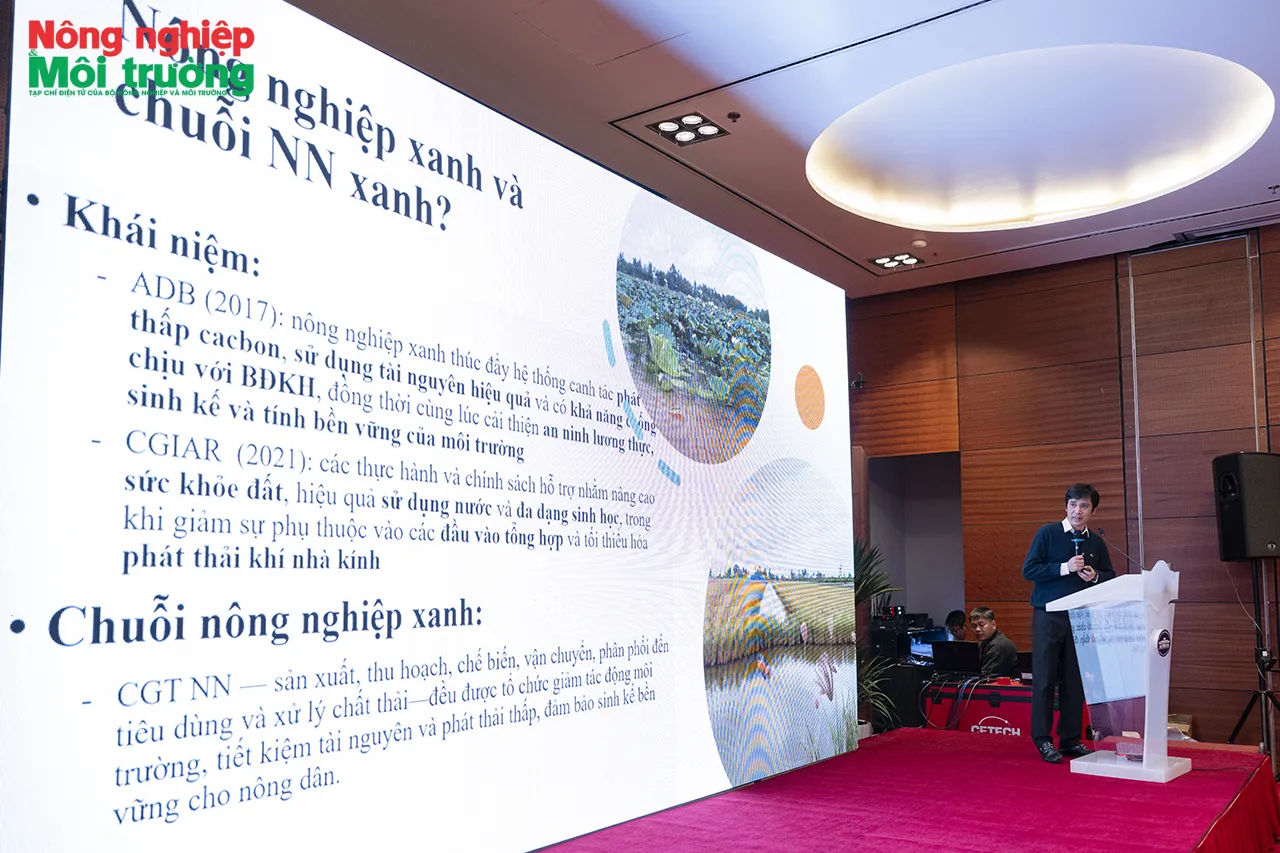
Dr. Tran Cong Thang underlined that collaboration between farmers and businesses in developing raw material zones and markets brings higher income, reduced risk, and improved rural livelihoods (Photo: Minh Thanh)
Dr. Tran Cong Thang emphasized that when farmers collaborate with businesses to develop raw material zones, expand markets, and increase added value, green agricultural chains generate dual benefits: higher income, lower risk, and improved rural livelihoods.
From a market perspective, Associate Professor, Dr. Pham Anh Tuan, Director of the Institute of Agricultural Mechanization and Post-Harvest Technology, recommended building regional branding, standardizing quality under geographical indications, and establishing distinct regional identities. Deep-processed products such as freeze-dried goods, essential oils, and other value-added items should be prioritized for export growth. Authorities and localities should support enterprises in participating in international trade fairs, cross-border e-commerce promotion, and keeping up with quarantine regulations, production area codes, pesticide residues, and green packaging standards in major markets.
Mr. Vuong Van Quy, Deputy Head of the Credit Policy Department at the Vietnam Bank for Agriculture and Rural Development, stressed the importance of establishing a unified green credit framework. This includes creating a national green economic sector classification, providing tools for financial institutions to monitor clients’ environmental compliance, and studying mechanisms for interest support, risk guarantees, and standardizing “green certification” criteria in legal documents such as environmental impact assessments and permits, thereby reducing overlaps between licensing and financial authorities.
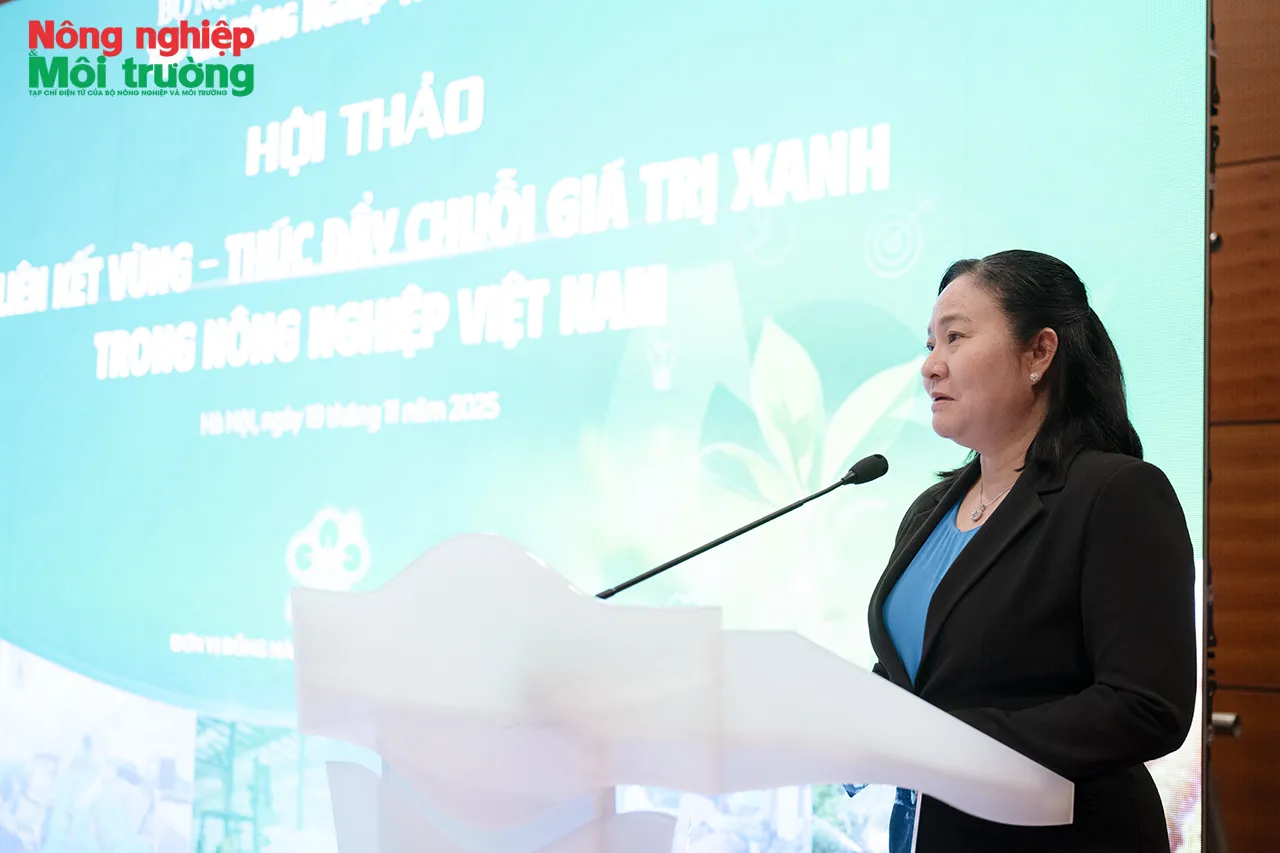
Ms. Quach Thi Thanh Binh called for stronger coordination and resource sharing among localities for climate adaptation, green agriculture, and sustainable planning of land, water, and transport infrastructure (Photo: Minh Thanh)
From the local perspective, Ms. Quach Thi Thanh Binh, Deputy Director of the Department of Agriculture and Environment of Can Tho City, called for enhanced coordination, experience sharing, and resource pooling among localities for climate adaptation, environmental protection, and green agriculture programs. She emphasized synchronized planning, particularly regarding land use, water resources, and transport infrastructure, to ensure harmonious, sustainable, and long-term development.
Participants also proposed policy and incentive mechanisms to encourage innovation, from investment incentives and technology transfer support to public-private partnership models that leverage social resources for green agriculture. Many contributions underscored the pioneering role of enterprises in leading value chains through organizing raw material zones, market orientation, processing investments, and brand building.
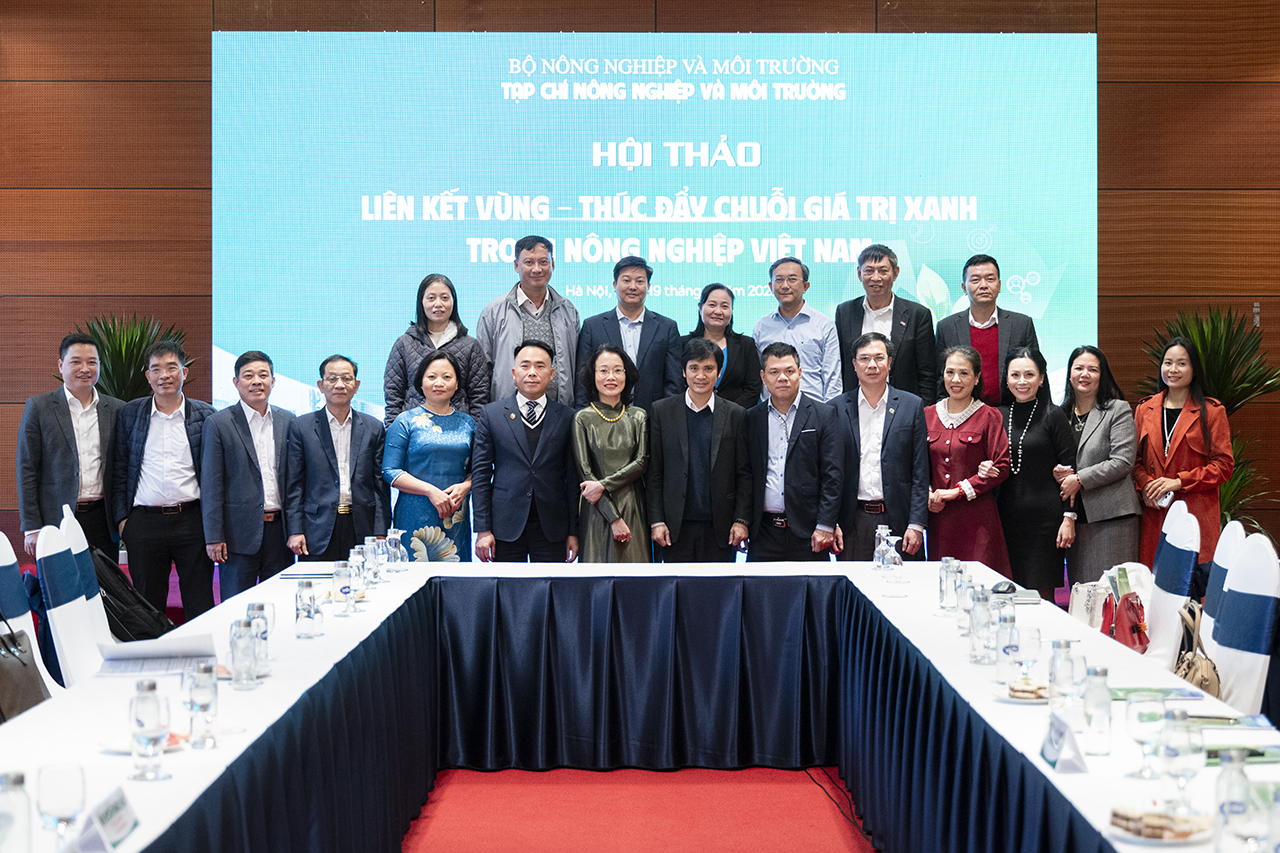
The workshop served as both a forum for exchange and a call to action for a green agricultural ecosystem based on fairness, harmony, and sustainability (Photo: Minh Thanh)
The workshop “Regional linkages – Promoting green value chains in Vietnamese agriculture” served not only as a forum for information exchange but also as a call to action toward a green agricultural ecosystem grounded in fairness, harmony, and sustainability.
Khanh Linh - Ngoc Huyen



